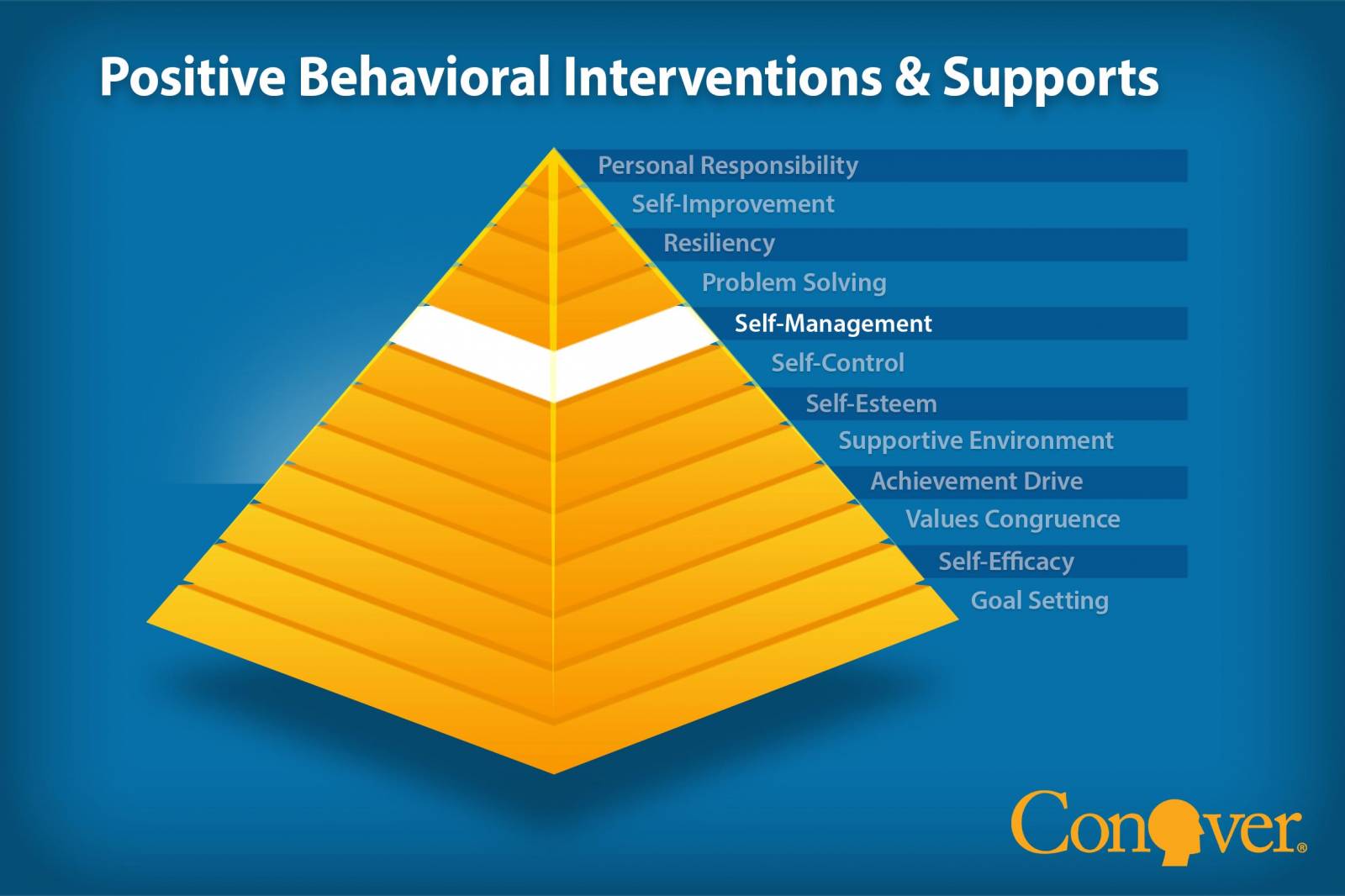
Self-management is the ability to use ones’ own time, talents, and abilities to work towards achieving goals. Self-management is one of the social/emotional skills that bridges both the academic and behavioral worlds. The skill to manage one’s time, talents and abilities and use these to achieve goals, ties directly into the PBIS model for providing supports to improve academic performance. Without self-management skills, academic success is an impossibility.
What I Like To Do vs. What I Have To Do

There are many reasons why people fail to manage themselves effectively. Excuses such as a lack of a purpose, lack of education, lack of money, and lack of time, are all very common ways of rationalizing failure. The reality is that people often fail because they lack the motivation to try hard enough to achieve their goals. A simple way of looking at motivation is by using the dissonance factor. Dissonance results when what one likes to do is different from what one has to do. When there is little overlap or crossover between the two, discomfort, frustration, and stress is the result. Self-management is about trying to reduce the discomfort, stress and frustration caused by these differences.
Strengths and Self-Management

One of the key parts of successful self-management is having an understanding of one’s strengths. A strength is an ability to do something well. Everyone has strengths. To identify their strengths, a person needs to look inside of themselves to determine what they are really good at. By doing this, they become more self-aware. Self-awareness is key to understanding ones’ strengths. Learning self-awareness starts with being mindful of new experiences. A correct sense of self-awareness is key to good self-management. Only by being fully aware of ones’ strengths and limitations, can someone use these strengths to develop good self-management skills.
If you’d like to learn more about how our Personal Responsibility program can help you assess and teach self-management click the free trail link below.
